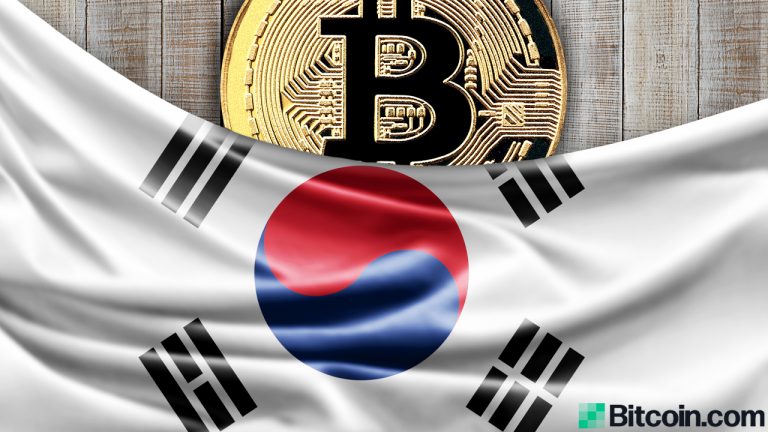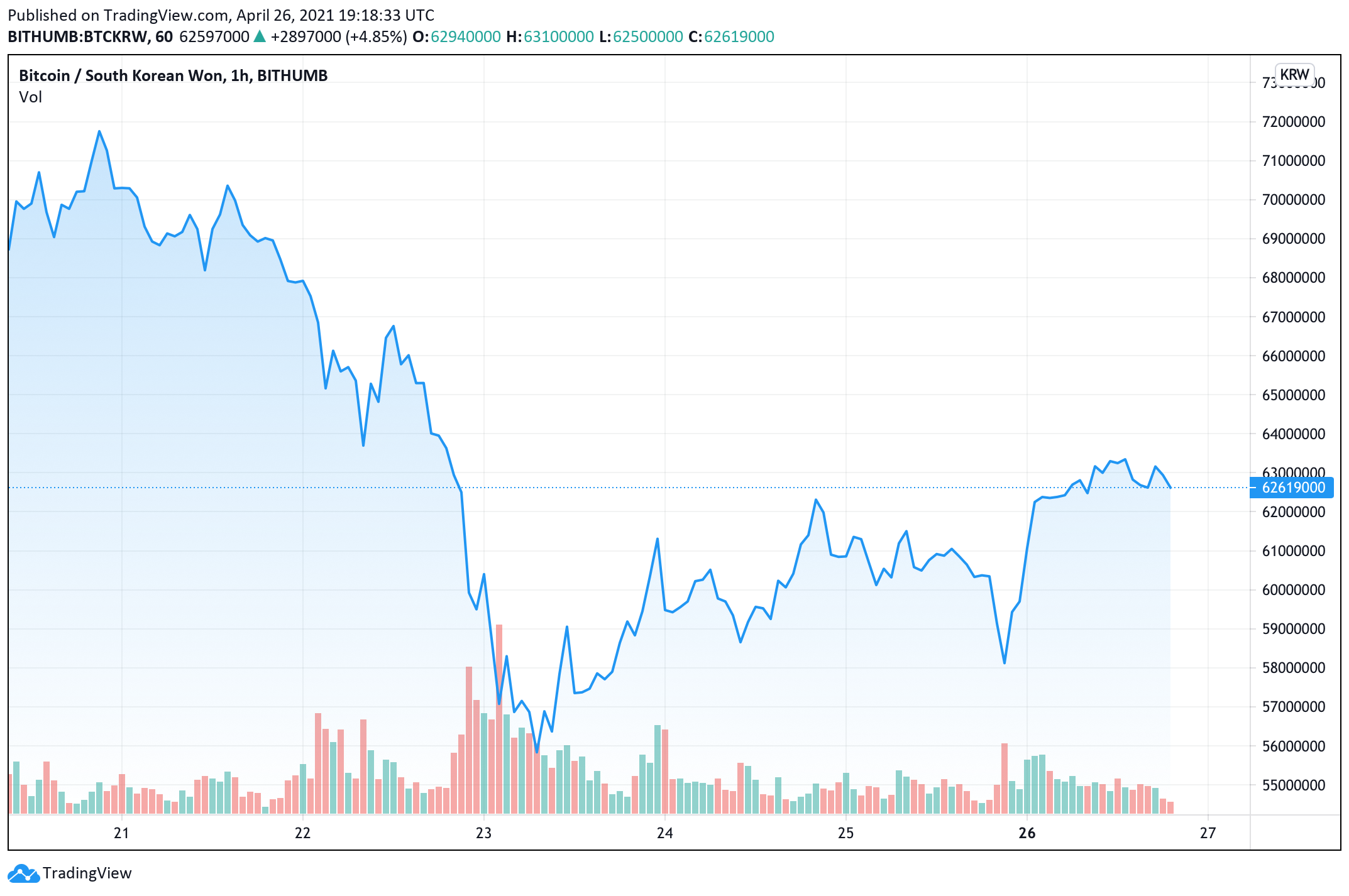South Korea’s Bitcoin ‘Kimchi Premium’ Reappears, Korbit and Bithumb Exchange Volumes Spike


During the first week of April, South Korea’s ‘kimchi premium’ on domestic cryptocurrency exchanges had jumped over 18%, but then leveled off, equalizing with global exchange rates over the last two weeks. On Monday, as bitcoin prices spiked 8% higher surpassing the $54k zone, in South Korea, the premium on bitcoin climbed 4.56% higher than the most trading platforms worldwide during the last 24 hours.
‘Kimchi Premium’ on Domestic South Korean Exchanges Starts to Rise Again
Bitcoin (BTC) and cryptocurrency markets have improved on Monday as the entire crypto-economy has risen by 3% since yesterday. BTC prices tapped a high of $54k during the early morning trading sessions and BTC currently rests just below the $54k zone at the time of writing.
In addition to the bitcoin price jump, the well known ‘kimchi premium’ in South Korea has returned. Currently, domestic exchanges like Korbit and Bithumb are trading for $3k more than most foreign exchanges.

Data shows that Bithumb’s BTC/KRW spot market volumes have increased by 13.2% today and a single bitcoin is swapping for prices between $56,345 to $56,727 or between 625,970,000 to 663,040,431 won. That’s a gap of 4.56% with the ‘kimchi premium’ and on Bithumb a number of other popular crypto assets are seeing premiums as well. ETH, for instance, is swapping for $100 more per ether on domestic exchanges. While XRP only has a $0.10 premium on Bithumb at the time of writing.
The South Korean crypto trading platform Korbit has similar premiums, but BTC prices are a touch lower than Bithumb’s current BTC prices. ETH prices and XRP prices on Korbit are relatively the same, showing a much smaller ‘kimchi premium’ on those crypto assets than BTC’s higher premium. Korbit’s collective trade volume for today for every trading pair is well over $100 million but Bithumb, on the other hand, has $2.3 billion in reported trade volume today.
if (!window.GrowJs) { (function () { var s = document.createElement(‘script’); s.async = true; s.type = ‘text/javascript’; s.src = ‘https://bitcoinads.growadvertising.com/adserve/app’; var n = document.getElementsByTagName(“script”)[0]; n.parentNode.insertBefore(s, n); }()); } var GrowJs = GrowJs || {}; GrowJs.ads = GrowJs.ads || []; GrowJs.ads.push({ node: document.currentScript.parentElement, handler: function (node) { var banner = GrowJs.createBanner(node, 31, [300, 250], null, []); GrowJs.showBanner(banner.index); } });
Weekend Trading Volume Increased by 28%
Overall, analysts are positive about BTC’s price jump, in general, as the weekend’s trading sessions and into Monday have shown bitcoin bulls are not giving up so easily. In a note to Bitcoin.com News, Alex Kuptsikevich, Fxpro senior financial analyst explained that overall trade volumes have increased this weekend.
“The weekend showed that the crypto market in general and Bitcoin, in particular, are not ready to give up,” Kuptsikevich said. “Market participants were waiting for the weekend results to see how the retail sector would react. At one point, Bitcoin reached a local bottom at $47,250, but this drop significantly increased the demand for the first cryptocurrency as the asset began to be bought by investors who were waiting for a discount.”
The analyst added:
An additional positive is that with the price rebound, the trading volume also increased by 28%, strengthening the positive sentiment. A rebound in the stock market could be a supportive factor for the crypto market in general.
Stats further show that the South Korean won captures close to 2% of BTC’s global trade volume today and the won is BTC’s sixth-highest trading pair. During the course of the weekend, volumes on South Korean exchanges have shown a steep increase as well and Monday’s BTC price spike has fueled the volumes on domestic platforms in the country.
The recent premium on South Korean exchanges follows the country’s regulatory decision to investigate the premiums and foreign investors leveraging arbitrage.
What do you think about the ‘kimchi premium’ on domestic South Korean exchanges? Let us know what you think about this subject in the comments section below.